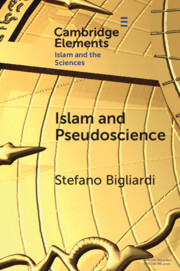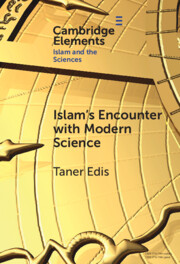Refine search
Actions for selected content:
2 results

Islam and Pseudoscience
-
- Published online:
- 20 July 2025
- Print publication:
- 14 August 2025
-
- Element
- Export citation

Islam's Encounter with Modern Science
- A Mismatch Made in Heaven
-
- Published online:
- 22 November 2023
- Print publication:
- 07 December 2023
-
- Element
- Export citation
